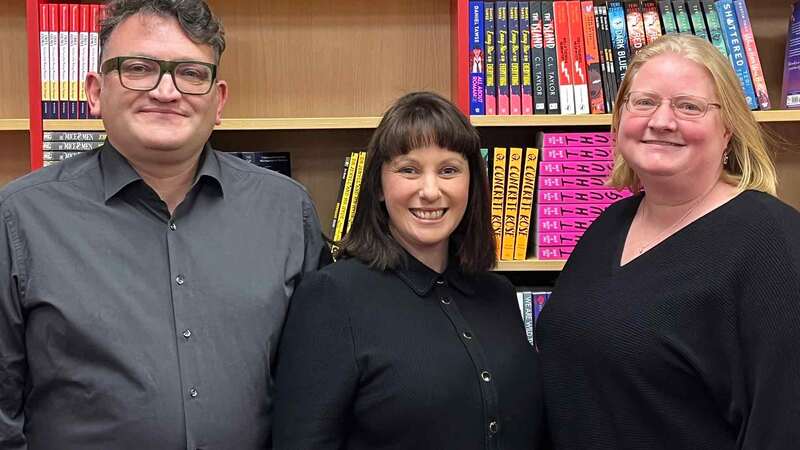You are viewing your 1 free article this month. Login to read more articles.
Beta version of Single Digital Presence will be available by early 2023, British Library says
The beta version of the Single Digital Presence, a long-planned national website for all public libraries, will be available for users and the sector by early 2023, the British Library has said. However, some trade commentators remain concerned about the time the project is taking to get off the ground, and warn “patience is wearing thin”.
The development of a "single digital presence" was one of the key recommendations of William Sieghart’s 2014 library report for England. The first phase of the project took place from 2018 to 2020, involving extensive research into international models of similar projects, and consultation with libraries and members of the public to explore how a digital platform might work and the resources that would be needed. Last year Arts Council England (ACE) announced a £3.4m fund to get the next phase of the project off the ground.
A spokesperson for the British Library told The Bookseller: “The Single Digital Presence is something that many of us involved with libraries have been feeling the lack of for years: a unified, national branded space online that brings together and promotes everything that’s most useful, valuable and loved about libraries across the UK. Arts Council England has supported the project with £3.4m of investment, which will go towards building not just the first iteration of a national platform but increased digital capability at local level.”
They stressed the project’s importance, arguing: “For too long, libraries have been low-profile or even invisible in people’s digital lives. Our research shows that many potential users simply don’t know about the incredible variety of resources on offer at their local library. People who don’t use libraries at the moment tell us that they often go elsewhere to access books and other resources as that simply seems easier.
“Our long-term goal is to increase use, both physical and digital, by building a highly visible, easily recognisable brand that can act as a focal point for libraries on the web, developed for and managed by the sector. Library staff repeatedly tell us that they don’t always have the control they might like over local authority web pages or the ability to update third-party systems, meaning that users can sometimes miss out on the breadth and vibrancy of what’s on offer.
“There’s a lot of innovative work already being done at local and regional level across the public library sector and we want to promote that and build on it. Our vision for this new platform has the professional values of libraries and librarians at its heart. In addition to developing an online platform, our work includes vital investment in skills, digital literacy, data stewardship, leadership and capacity building across the sector.”
When questioned what this will mean for library users, the spokesperson said: “Library users will have a one-stop shop on their mobile phone, tablet or laptop that showcases the best of the sector as a whole while also connecting them directly to the resources available at their own local library, with a smooth and intuitive user journey between the two.
“Anyone will be able to browse the site, find out how to access information and reading material from their local library as well as events, news, free-to-access content and reading recommendations from libraries nationally, including the British Library.”
When asked what this will mean for libraries themselves, they added: “The central site means that library staff will be able to showcase their events and ideas on a truly national stage, building on the free-to-access events and advocacy and simplifying the onward user journey to online library catalogues, enquiry services and e-books.
“The project also includes a £1.1m grant scheme for up to 50 library authorities in England, directly funding the tools and providing support for libraries to improve their local online services. This will include opportunities to learn from others and have access to shared design features.
“This work is important because it offers a chance to reinvigorate libraries in the public imagination and reinforce their role as part of the UK’s knowledge ecosystem. A unified, easily understood and recognisable identity will enable us to demonstrate the sheer richness of public libraries in the UK.”
A common criticism of the project so far has been a vague and lengthy timeline. Tim Coates, library campaigner and former Waterstones boss, said although the project is “a sensible thing to do", "we’re near the end of 2022 and we haven’t even got a clear statement of what they would be trying to do”.
He would like to see the SDP work as a platform for e-books and audiobooks, but argues the latest plans for the service “aren’t of any use to the public”, claiming the project is mainly focused being on “a central place to report when [libraries] have an event”. However, he attributes this to fixed positions on the part of heads of library services across the country, rather than the British Library itself.
Ian Anstice, who runs website Public Libraries News, told The Bookseller that the need for an online national shop window for public libraries “has been obvious for at least a decade and would have been especially ideal for during lockdown”.
“That was not to be. A single site or app where anyone in the country can borrow e-books would also be ideal, not least because of the increased purchasing power such a unified approach would have, but it’s evident that the fractured nature of the English public library sector means that that this is impossible” he explained.
“The team at the British Library are making every effort, and taking their time, to make sure the final product is as good as possible and, although it will be many years later and less comprehensive than dreamed of, I really hope that they get it right. Public libraries deserve an excellent online presence and I will reserve my judgement on whether that has been achieved until we eventually see it next year. We have waited this long. We can wait a few more months, painful as it may be. However, patience is wearing thin and if this simply results in several more years before something is delivered then this project will be a failure, no matter how glossy it eventually turns out to be, who knows when."
Nick Poole, chief executive of the Chartered Institute of Library & Information Professionals (CILIP), said he thinks there is a “widespread misunderstanding about what the Single Digital Presence is really all about and what problem it is solving”. He told The Bookseller: “The real issue is that in 2022 the overall digital experience of public libraries is nowhere near as inspiring, accessible or exciting as the physical experience.
“It would be easy to say ‘just build a website or app’, but I believe that we really have to target the underlying causes of this ‘digital gap’ in our offer. These causes include a lack of capacity and resources and challenges in accessing e-content. But they also include things like a lack of ‘digital culture’ in libraries and a reluctance to experiment with technology in the ways that, for example, museums and the creative arts sectors have been able to do.
“If it feels like the SDP is taking a long time, that’s because it is tackling the real underlying challenge of digital transformation across the whole public library sector. It’s a big task, but an exciting one. At stake is the opportunity permanently to transform the relevance and reach of public libraries as trusted organisations in an increasingly connected society. I think that’s worth the wait.”
The British Library agrees. It told The Bookseller: “A beta version of the national platform will be available for users and the sector by early 2023. From then on, as with all digital products, it’ll be an incremental process, in which the team running the platform will learn from the way people interact with this and increase functionality as we go.”
In response to claims the service will mainly be focused on sharing event listings, it added: “Event listings are one of the features we plan to deliver, but they won’t be the central focus of the platform. It will also link people through to their local transactional services so they can browse the catalogue, borrow e-books and so on, as well as sharing content from and about libraries across the UK.
“We do want to make it easier for existing and new users alike to easily see what’s going on in libraries near them and across the country. We know that communities often aren’t aware that these things are happening nearby for free, so we want to help libraries to connect users with the kinds of events and information that interests them.”
Acknowledging concerns about the time the project has taken, the spokesperson said: “It would be wonderful if all of this could be conjured into existence overnight. But we’re determined to build a sustainable product that meets both current and future needs, and doing that properly takes time and care. It’s not uncommon for digital transformation of this scale to take a number of years, such as the BBC iPlayer and the Government Digital Service. Doing the groundwork in terms of research and testing now will maximise the chances of long-term value, adoption and investment.”



















